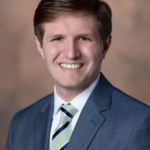2022 ASHEcon COVID-19 Plenary Summary
By Brandyn F. Churchill, Assistant Professor in the Department of Resource Economics at UMass-Amherst
ASHEcon 2022 featured a spirited discussion evaluating the policy response to the COVID-19 pandemic. The plenary was moderated by Neeraj Sood (Professor of Public Policy at University of Southern California) and included Kosali Simon (Distinguished Professor of Public and Environmental Affairs at Indiana University), Jeffrey Clemens (Associate Professor of Economics at UC San Diego), Douglas Harris (Professor of Economics at Tulane University), and Jay Bhattacharya (Professor of Health Policy at Stanford University). Panelists were each given the opportunity to offer their perspectives on responses to the pandemic. The thoughts and themes of the panelists are summarized below.
What worked? The panelists pointed to the rapid development of safe and effective vaccines through Operation Warp Speed as a clear policy success. Prior to the COVID-19 vaccines, the fastest vaccine developed was Mumpsvax – a process which took four years in the 1960s. In contrast, the first COVID-19 vaccine was approved under emergency use authorization less than a year from when the virus was first identified. This success was in part because Congress’s quick initial response included funding that was used to boost manufacturing capabilities, enabling pharmaceutical firms to invest aggressively in vaccine development.
What went wrong? There was less agreement among the panelists about policy failures. Clemens highlighted the limited number of approved COVID tests, and their subsequently high cost, as a policy mistake. Bhattacharya argued that the small number of approved tests was driven by public health officials’ desire for a reportable standardized testing system that could trigger school closures and lockdowns. He argued that these latter policies were complete failures. Simon argued that testing, rather than keeping kids out of the classroom altogether, helped parents feel safe in their decision to send their kids to school. While acknowledging the costs associated with school closures – especially for the most disadvantaged students – Harris concluded that we still do not know with certainty the health maximizing policy on school closures.
What’s next? Reflecting on their own work throughout the pandemic, both Harris and Simon advocated for improved data collection and the development of analytic tools to help better respond to the next crisis. Yet Simon cautioned against overweighting the probability that the next emergency will involve an infectious disease. Consistent with that point, Clemens called for enhanced fiscal preparedness through automatic stabilizers that would reduce uncertainty over how the government intends to respond to national crises. At a more fundamental level, Bhattacharya stressed the need to listen to all voices when responding to crises, and Clemens reminded the audience that advocacy with a false sense of certainty is inconsistent with the role and mission of researchers.

